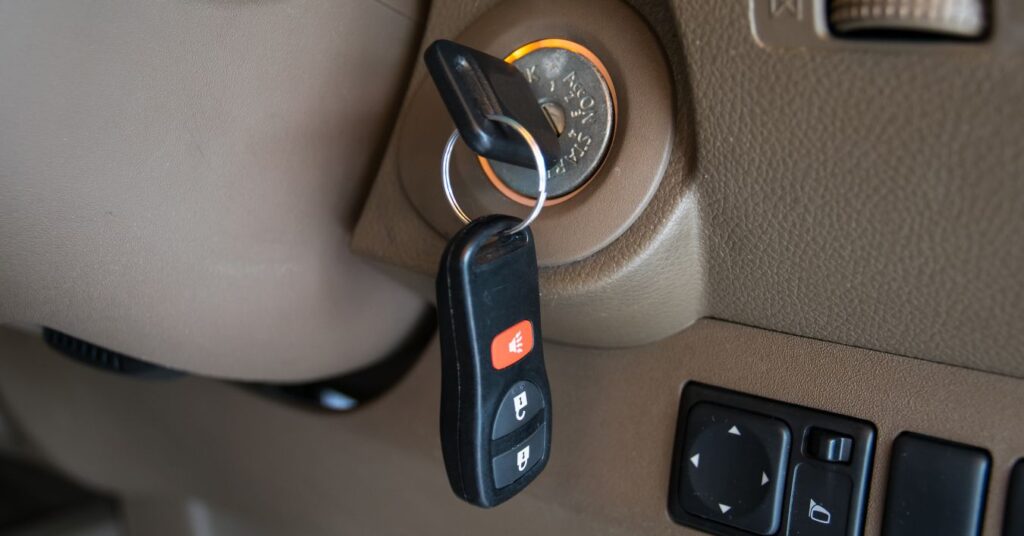
Table of Contents
Experiencing car trouble can be stressful, especially when it’s unclear what the problem might be. One key component under the hood that often gets overlooked is the car starter. This article will delve into the critical signs of a bad car starter, helping you understand when it’s time for a check-up. We’ll explore how this small device plays a significant role in your vehicle’s operation and how to spot the warning signs before it’s too late.
What Does The Starter In A Car Do?
The starter in a car is akin to the spark that lights a fire. It’s what sets the engine in motion. When you turn the ignition key or push the start button, the starter motor is the equipment that keeps your car’s engine running. Without a properly functioning starter, your vehicle might not even begin to operate, emphasizing the importance of this seemingly small part in your vehicle’s overall health.
How To Tell If Your Starter Is Going Bad
Identifying a failing starter early can prevent you from being stranded and facing unexpected repair costs. A starter in good condition is crucial for reliable vehicle operation. In this section, we’ll discuss clear indicators of a bad starter, offering insights to help you understand when it’s time for a professional check-up.
1 – Long, Slow Crank To Start The Engine
A healthy car starter should effortlessly and quickly turn the engine over. If you notice your car starter straining or taking longer than usual to start the engine, this is a classic sign of a problem. However, it’s essential to consider other factors, like battery health or electrical issues, before concluding that your starter is at fault. The mechanics at McCullough NAPA Auto Care can diagnose the issue for you and make the necessary repair.
2 – Lights Become Dim
When you start your car, do you notice that your headlights, internal lights, and circuitry dim? This is not normal. This symptom indicates the starter might be drawing too much power from the battery, possibly due to a short circuit. Such an occurrence overtaxes the electrical system and is often a tell-tale sign of a starter on its way out.
3 – Starter Spins, But Engine Doesn’t Turn Over
Hearing the starter spin without the engine turning over is another sign that the starter might be disconnected from the flywheel. The starter receives power but fails to engage with the engine. This condition, known as freewheeling, occurs when the starter motor fails to engage with the vehicle’s flywheel properly, causing the flywheel to spin independently.
4 – Grinding Noises
A grinding noise during startup is a red flag. Grinding noises are generally red flags in cars, but this is especially true for the starter. A grinding noise could mean that the gears within the starter or those connecting the starter to the engine are not meshing correctly. Continuous grinding can cause significant damage, and if the noise persists after the motor starts, it might indicate that the starter is receiving power when it shouldn’t, pointing to a potential solenoid issue.
McCullough NAPA Can Fix or Replace Your Bad Starter
Being mindful of these signs of a bad car starter can save you from the inconvenience and cost of a car that won’t start. If you’re experiencing any of these symptoms, it’s time to consult a professional. At McCullough NAPA Auto Care, our team of experts is equipped to diagnose and resolve starter issues, ensuring your vehicle’s reliability.
Don’t wait until you’re stranded. Schedule an appointment with us today to have your starter inspected and repaired if necessary.
FAQ About Why Your Car Won't Start
This issue often indicates a problem with the starter system. Although electrical accessories like lights and radio might work, the starter might be unable to turn over the engine, possibly due to a bad connection or a faulty starter.
Several factors can cause a car not to start, including a dead battery, faulty starter, bad ignition switch, or fuel system issues. It’s essential to diagnose the specific cause to address the issue effectively.
If your car turns over but won’t start, check for issues in the fuel and ignition systems. It could be a problem with fuel delivery or spark generation. It’s advisable to get a professional diagnosis in such cases.
Signs of a bad starter include a slow engine crank, clicking noises without engine turn over, and the starter remaining on after the engine starts. Also, a grinding noise or smoke from the starter area are clear indicators.
This situation often suggests an issue with the starter system. While the battery might have enough power for lights and radio, it may not be sufficient to turn over the engine, or there might be a fault in the starter motor or connections.

